 Carlo Pietro Giovanni Guglielmo Tebaldo Ponzi was born to a well-to-do family in Parma, Italy in 1882. In 1903, he moved to North America. Living in both the U.S. and Canada, he became involved with hustle after hustle and wound up spending time in prison in both countries.
Carlo Pietro Giovanni Guglielmo Tebaldo Ponzi was born to a well-to-do family in Parma, Italy in 1882. In 1903, he moved to North America. Living in both the U.S. and Canada, he became involved with hustle after hustle and wound up spending time in prison in both countries.
In 1918, and back on the streets, he established himself as one of the greatest swindlers to ever hit the United States.
In Boston, using the name Charles Ponzi, he promised clients a profit of 50% within 45 days if they invested in his arbitrage system. The way it worked, he told his potential investors, he would use their moneys to purchase international reply coupons (IRC) in Italy. Because of inflation in Italy after World War I, the cost of postage plummeted. He would purchase IRCs at discounted rates in Italy and then exchange them for postage stamps in the United States at full value. He would then sell the stamps for full price and split the profits with his investors.
And Ponzi delivered on his promise. His first investors made initial investments of $1,250 and he returned $2,000 to them just 45 days later – a neat and easy profit of $750.
Clients started lining up around the block to cash in on the easy money to be made with Ponzi’s newly-founded Securities Exchange Company. So much money was rolling in that Ponzi hired agents, paid them high commissions, and watched as even more money kept rolling in.
The way it really worked was that Ponzi distributed funds to early investors with funds he received from later investors. His scheme rolled on for years, but he eventually ran out of new investors. While the latest investors lost all their money, Charles Ponzi profited more than $20-million over the years.
But, once again, Ponzi wound up in prison.
Sam Hinkie
Sam Hinkie was born to a Haliburton employee working in the Netherlands in 1977. In 1981, his family moved to North Carolina. When Hinkie was ten, his family moved to Oklahoma. In high school, he played defensive back on the football team and point guard on the basketball team.
He graduated from Oklahoma summa cum laude and was named one of the top 60 undergraduates in the country by USA Today. He earned his MBA at Stanford and worked as an adviser to the San Francisco 49ers and Houston Texans in the areas of draft strategies and statistical analysis.
In 2005, the Houston Rockets hired him as a special assistant to GM Carroll Dawson. Hinkie then climbed the ladder to vice president, Executive Vice President, and finally as first assistant to GM Daryl Morey, who succeeded Dawson as GM in 2007.
Hinkie’s area of expertise was the use of advanced statistics – now referred to as “analytics.” Hinkie is credited with using his analytics to help bring Kyle Lowry, Patrick Beverly, and James Harden to the Houston Rockets.
Con-Man
Sam Hinkie didn’t add con-man to his résumé until soon after the Sixers hired him to be their general manager in 2013.
Sixers fans, you’re being duped by the reincarnation of Charles Ponzi, right here, right in front of your eyes, in Philadelphia. Sam Hinkie is promising that if you buy into his Tank-a-Palooza system today, you’ll see the Sixers become NBA champs tomorrow.
The problem is – Sam Hinkie’s “tomorrow” is a nebulous concept. From where I’m sitting, Sam Hinkie’s “tomorrow” has about as much chance of coming to Philadelphia as the apocalypse and global warming.
And I’m not the only “expert” who feels that way. Thursday night, I was listening to Brian Haddad on WIP – Sludge, as he likes to be called, is one of my favorites – and a guest came on the air. His name is Brian Geltzeiler and you can find him on Twitter at @hoopscritic.
Sludge started the interview by stating that, in his opinion, Sam Hinkie’s “genius” is that he’s delayed the judgement of his success or failure for several years. And then he asked Brian Geltzeiler for his opinion.
“I’ve been very down on Hinkie’s approach for a while now. And today is part of the reason. I’ll say this, he didn’t have a horrible day today. But what he did do was let you know that any of this nonsense about them looking to go and be active in free agency and get players to compete next year – that’s garbage. Cuz he just pretty much took any chance he had of that and traded it away today
And my problem, more than anything else, is that asset accumulation is fine, but asset accumulation has to at one point stop and has to become about winning basketball games. And what Sam Hinkie’s done is that he’s just continued to kick the can down the road – and there comes a certain point in time where that doesn’t work anymore.” – Brian Geltzeiler
According to the hoops expert in the room – there comes a certain point in time where that doesn’t work anymore?
When is that?
I don’t know. But if Charles Ponzi were still alive, I’d ask him about that. Sam Hinkie doesn’t have to worry about going to prison for committing fraud, but Sixers fans have already been paying for his hustle for the better part of two seasons now. How much longer will it last? I don’t know. You can ask Sam Hinkie, but he ain’t sayin’.
Thanks to Brian Haddad and Brian Geltzeiler. You can listen to a podcast of that radio interview by CLICKING HERE.
Barry Bowe is the author of 1964 – The Year the Phillies Blew the Pennant and Born to Be Wild.
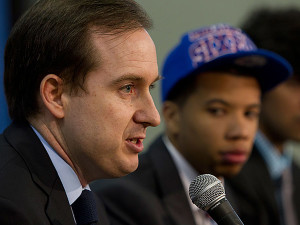
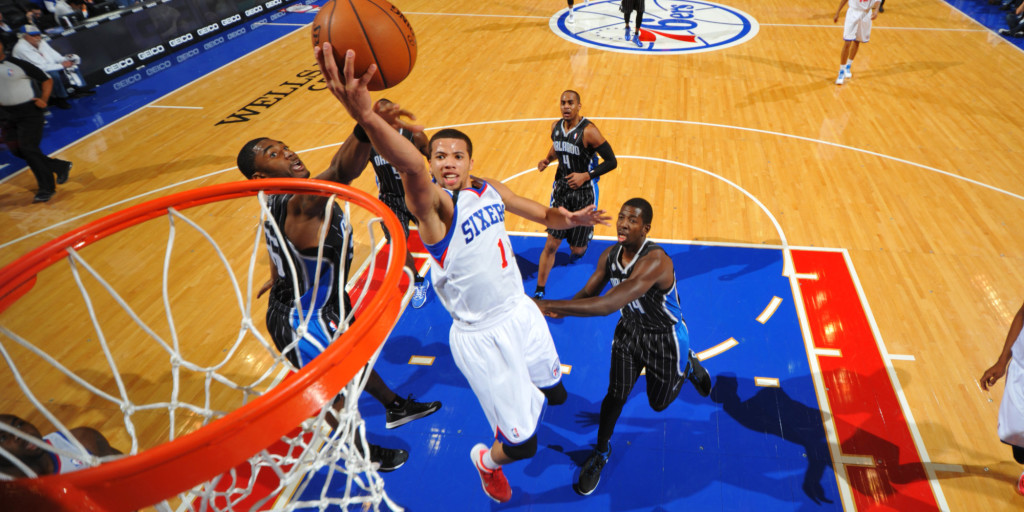
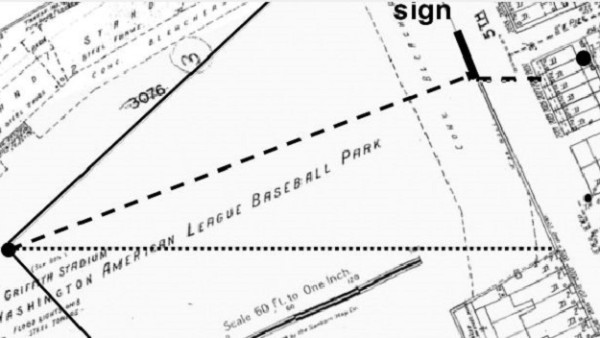
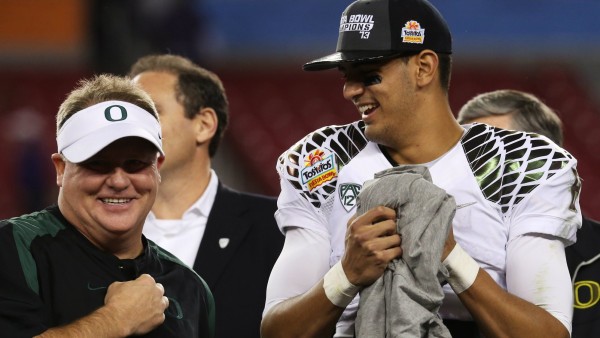



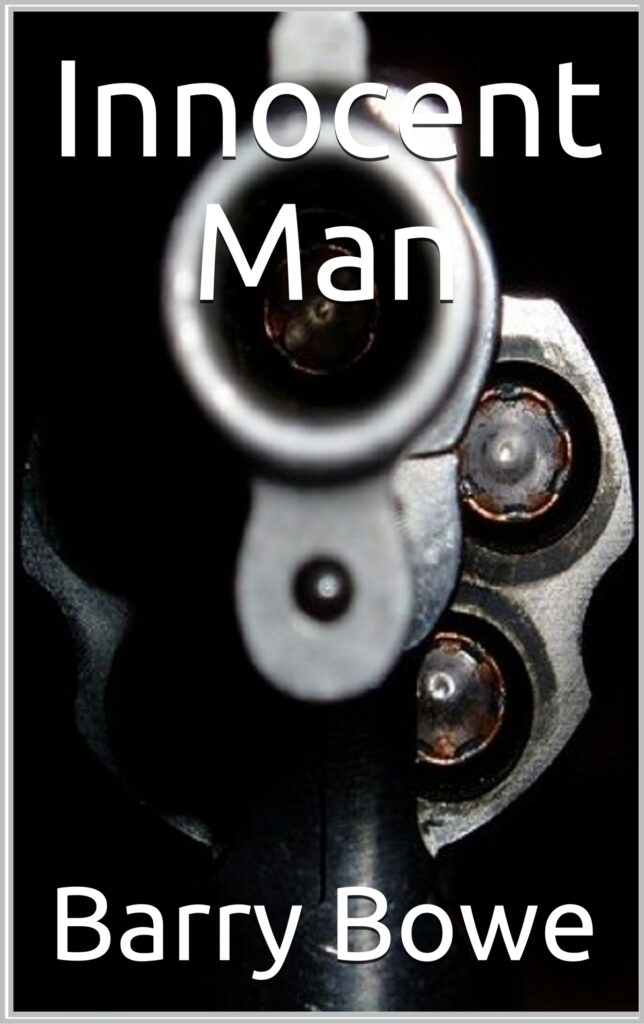

Comments
1 Comment